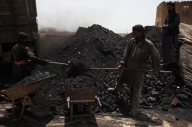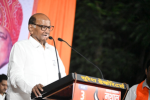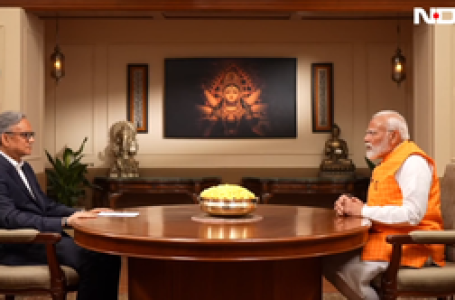
After the petrol-diesel-cooking gas blues, now it is the turn of electricity, the price of which may rise by 60-80 paisa per unit soon, according to union power minister R K Singh. Once again, like the crude oil, at the root of the increase is the import of coal.
But there is one major difference. While we are constrained to import crude oil because we have no other option, the case of coal is almost the opposite. Our successive governments did not amp up our domestic coal production, and now the consumers will pay the price.
A point to be noted: India recently imported coal at a price which was nine times higher than the price of Indian coal. It had to be done under duress, for coal stock at generation stations was almost exhausted, and domestic coal was not available.
But, how we reached at this peculiar situation is quite an interesting story.
In 2020, India had the fifth-largest coal reserves, just below China that had the fourth-largest reserves. While our reserve was 111 billion tones (BT), China’s was 143 BT. Though coal reserves are comparable in quantity, it is quite intriguing to note that China produced 3.9 BT of coal in 2020, while India produced just 759 million tonnes (MT). In other words, China produced five times more than India.
Raw coal (coking and non-coking) production in India increased from 341.272 MT in 2002-03 to 777.31 MT in 2021-22. So, the annual growth rate was of just over 8 percent, and as the experts point out, most of it was increase in production of thermal coal. But the economy was growing faster, and the demand for power was growing fast too. This led to increasing dependence on imported coal.
And yet, unlike China, production of coal was not amped up over the decades for unknown reasons, and so the crisis knocked at the door at the most inconvenient time. First time it hit India in November 2021 and then in April-May 2022. On both the occasions power supply was about to be seriously interrupted as coal stocks at thermal power generation plants fell to dangerously low level.
It was then that the Indian government asked the generators to import coal. There was no other alternative either. And the generators had to resort to import it at a time when international coal price was at its highest level.
International coal prices fluctuate, and that affect the cost of production of electricity. That was why most of our power plants reverted to using domestic coal in last decade. But as the production of coal was not amped up with urgency, it put pressure on domestic coal stock. Finally it led to the recent crises when power demand rose by 15-25 per cent in post-Covid era.
As import was resorted to at a time when international coal prices were at their highest levels, it was known that it would be a heavy burden on the Indian power generation system that was facing financial distress, particularly due to the onslaught of the pandemic. The question was how the additional burden will be shared among the federal government and state governments, the producers and the distributers, and the consumers.
Now, we have the answer. The electricity bill of the domestic consumer is going to increase by 10-20 per cent.
It is often argued that our coal is not of as good quality as those imported from Australia, Indonesia, South Africa and so on, and that makes import necessary. But if only we had a policy simple enough that allowed import when the international price was low and stopped import when it was high, we could have avoided such harsh burden on the consumers who are already hard hit by inflation.
China invented such a policy one-and-a-half decade ago. In 2009, for the first time it resorted to coal import. It imported 129 MT coal that year, though its own domestic production of 2.9 BT was enough to meet its domestic demand. It is continuing with this policy since, and is not affected by the rise of international coal price.
It is quite intriguing why our policy makers did not follow the same path, particularly when in the future coal will be mostly abandoned to create a greener world. We still produce less than a billion ton, while our stock is 111 BT. But will coal be needed after hundred years?
Our system works in a strange way, and we never get answers of many relevant questions. The union power minister has blamed the previous Manmohan Singh government for the present crisis. But is eight years not enough to reverse the policies and amp up coal production? We will never get any answer to it, for politics is more important than economics in our country. – IANS



















